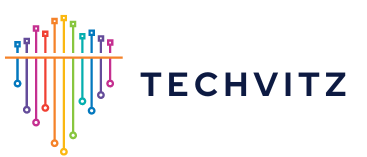In the realm of construction, precise planning is the cornerstone of success. From the inception of a project to its completion, every phase requires meticulous attention to detail. One of the critical aspects that demand thorough planning is cost estimation. Accurate cost estimation is imperative for ensuring the financial viability and timely completion of construction projects. In this article, we delve into the significance of detailed planning in construction cost estimation.
Understanding Construction Cost Estimation
Construction cost estimation is the process of forecasting the expenses associated with a construction project. It involves evaluating various factors such as materials, labor, equipment, permits, and overhead costs. An accurate cost estimate serves as a roadmap for project stakeholders, guiding them through budget allocation and resource management.
The Role of Detailed Planning
Pre-Construction Phase
Detailed planning begins in the pre-construction phase, where project requirements are analyzed, and objectives are defined. During this phase, architects, engineers, and construction managers collaborate to develop a comprehensive project plan. By outlining specific deliverables, timelines, and resource requirements, stakeholders can align their efforts towards a common goal.
Scope Definition
A crucial aspect of detailed planning is defining the scope of work. This involves identifying all tasks, subtasks, and deliverables associated with the project. By clearly delineating the scope, project teams can avoid scope creep and ensure that all activities are accounted for in the cost estimation process.
Risk Assessment
Detailed planning also entails conducting a thorough risk assessment. Potential risks such as material shortages, labor disputes, regulatory changes, and unforeseen delays can significantly impact project costs. By proactively identifying and mitigating risks, project stakeholders can minimize cost overruns and schedule disruptions.
Resource Allocation
Effective resource allocation is paramount in construction cost estimation. By accurately estimating the quantity and cost of materials, labor, and equipment required for each phase of the project, stakeholders can develop a realistic budget. Additionally, allocating resources efficiently helps optimize productivity and minimize waste, further enhancing cost-effectiveness.
Contingency Planning
Despite meticulous planning, unforeseen circumstances may arise during the course of a construction project. Therefore, it is essential to incorporate contingency provisions into the cost estimation process. Contingency planning involves setting aside a reserve fund to address unexpected expenses or schedule changes, ensuring that the project remains on track despite challenges.
Benefits of Detailed Planning in Construction Cost Estimation
Cost Accuracy
Detailed planning enables stakeholders to achieve greater accuracy in cost estimation. By thoroughly analyzing project requirements and potential risks, project teams can develop more realistic budgets and avoid costly surprises during implementation.
Schedule Adherence
Effective planning facilitates adherence to project schedules. By establishing clear milestones and timelines, stakeholders can monitor progress and identify deviations early on, allowing for timely adjustments to minimize delays.
Stakeholder Alignment
Detailed planning fosters alignment among project stakeholders. By involving all relevant parties in the planning process and clearly communicating project objectives and expectations, stakeholders can collaborate more effectively towards achieving common goals.
Risk Mitigation
Proactive risk assessment and contingency planning help mitigate potential disruptions to the project. By identifying risks upfront and developing mitigation strategies, stakeholders can minimize the impact of unforeseen events on project costs and schedules.
Quality Assurance
Detailed planning promotes quality assurance throughout the construction process. By specifying quality standards, conducting inspections, and implementing quality control measures, stakeholders can ensure that the finished project meets or exceeds expectations.
Summary:
Detailed planning plays a pivotal role in construction cost estimation. By meticulously analyzing project requirements, defining scope, assessing risks, allocating resources, and incorporating contingency provisions, stakeholders can develop accurate and realistic cost estimates. The benefits of detailed planning extend beyond cost control to encompass schedule adherence, stakeholder alignment, risk mitigation, and quality assurance. In an industry where precision is paramount, thorough planning lays the foundation for successful project execution.

